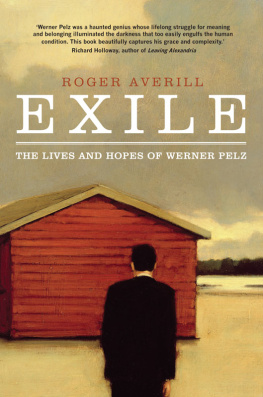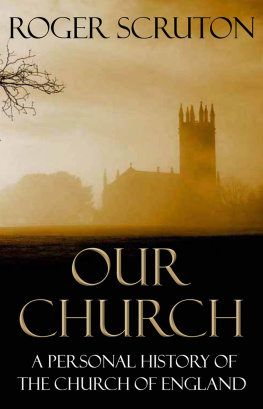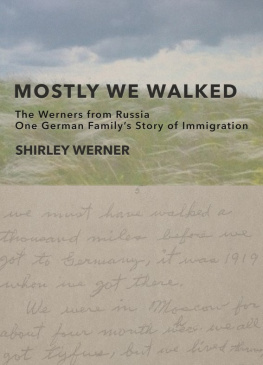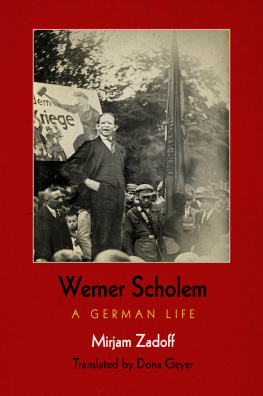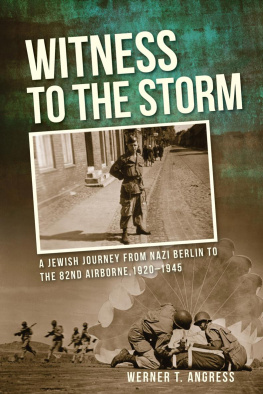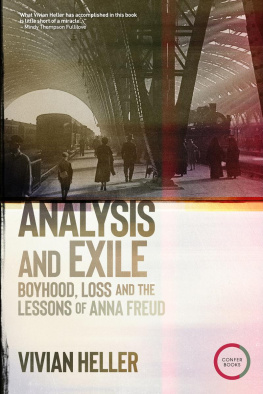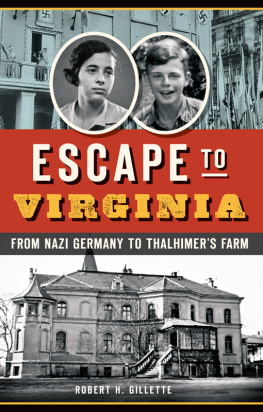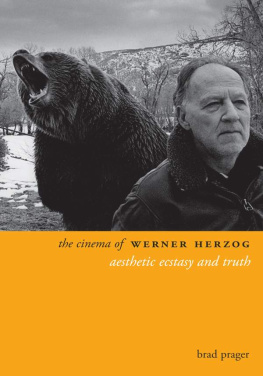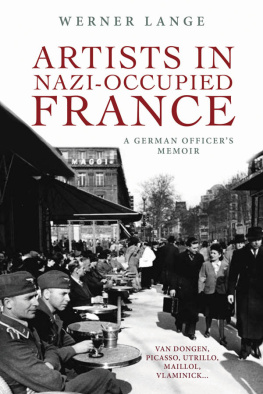EXILE
THE LIVES AND HOPES OF
WERNER PELZ
Roger Averill is the author of the novel, Keeping Faith, and a travel memoir, Boy He Cry: An Island Odyssey which featured on Radio Nationals First Person. He is an Adjunct Associate Lecturer at the Institute for Social Research at Swinburne University, and he received a Creative Fellowship from the State Library of Victoria to assist with the research for Exile.
EXILE
THE LIVES AND HOPES
OF WERNER PELZ

ROGER AVERILL


MELBOURNE, AUSTRALIA
www.transitlounge.com.au
Copyright Roger Averill 2012
First Published 2012
Transit Lounge Publishing
This book is copyright. Apart from any fair dealing for the purpose of private study, research, criticism or review, as permitted under the Copyright Act, no part may be reproduced by any process without written permission. Inquiries should be made to the publisher.
Every effort has been made to obtain permission for excerpts reproduced in this publication. In cases where these efforts were unsuccessful, the copyright holders are asked to contact the publisher directly.
Cover and book design: Peter Lo
Cover painting: Ben Mc Laughlin / Bridgeman Art Library
Printed in China by Everbest
This project has been assisted by the Australian government through the Australia Council for the Arts, its arts funding and advisory body.

Cataloguing-in-publication entry is available from the
National Library of Australia: http://catalogue.nla.gov.au
9781921924040 ( e-book)
Praise in this fallen So red round berry all that Goes untold to ground
Lotte Pelz

I am not explained, not even when everything about me has been explained.
Werner & Lotte Pelz, True Deceivers
For Peter Pelz
CONTENTS
PROLOGUE
Come in!
When I opened the door the typewriter stuttered to a stop. Werner turned from his desk. Ah, that time already! he said, rising from the chair. Good. Yes, yes, come in.
Standing before him, I suddenly felt tall, awkward. He was short, and moved with a vigour that made my longer limbs seem excessive. His face, especially in profile, was like Sigmund Freuds, except rounder, less grim; the seriousness of the neat, greying beard disrupted by smiles and laughter. It was his eyes that struck me most. Large and a warm, burnished brown, they conjured a world I had only read about.
Gesturing towards the squat, vinyl chairs that were standard issue in the Sociology Department, Werner began to sit, but then sprang up again. Would you like a coffee?
Having seen him silence a lecture hall full of students, drawing them in with his mellifluous voice, with the calm intensity of his ideas, I found it humbling that he should go to so much effort just for me.
Its no trouble, he said, as if divining my thoughts. He collected two cups from his desk. You have milk, dont you?
It was 1985 and wed been meeting weekly like this for two months. I was in the third year of my degree and Werner was supervising my Free Reading Unit, a precursor to Honours, in which I was allowed to read whatever I liked on a topic of my choosing so long as I produced a 6,000 word essay by the end of the semester. Young and undaunted, Id wanted to write about the role of art and the artist in capitalist societies. Rather than ridicule the pretentiousness of this proposal, Werner encouraged it.
Follow your interests, hed said. Study what youre passionate about.
In time, I learnt he was no fan of the academic trend towards ever increasing specialisation, of people knowing more and more about less and less. For him, my over-reaching was a promising sign.
I read the Duino Elegies, I said, my hand rummaging in the backpack, among notepads and library books. Werner knew that I wrote poetry, and having talked about Wordsworth and Eliot in previous sessions, had lent me an English edition of Rilkes poems because, like the others, Rilke was one of his favourites. This, he thought, was a good translation of the German original.
What did you make of it? he asked, eagerly, intently, as if he might learn something from my response. Did it speak to you?
Maybe, but not very clearly. More a mumble, I said, finally pulling the bright purple book from my bag. I cant say I understood who or what the angels are. A few times I thought I was getting a handle on them, but then they shifted into something else. Something always beyond reach.
Perhaps you understood more than you know, he chuckled. I dont understand them either. But then Im not sure were meant to! He tamed a loose strand of hair with his hand, swept it behind his ear. I think theyre intimations.
Of what, though?
Yes, precisely. Perhaps only of themselves, of that something that is always beyond reach. Do you remember near the beginning of the Ninth Elegy where it goes Ah, I only know it in the German. Can you find it there? he asked, gesturing to the book. Aber weil Hiersein viel ist something like: But because to be here is much
Flicking through the pages, knowing how little I remembered of what Id read only a day earlier, I found the Ninth Elegy and began skimming.
Here it is, I said, taking up where he had left off. And the transient Here seems to need and concern us strangely. Us, the most transient.
Werner sipped his coffee, shifted back in his chair and crossed his legs. Yes, I like this translation very much. How does he put the next few lines?
Everyone once, once only. Just once and no more. And we also once. Never again. But this having been once, although only once, to have been of the earth, seems irrevocable.
I still wasnt sure I understood, but that didnt seem to matter with Werner. We talked some more about Rilke. He pointed out other passages, and told me something of the poets life. As always, he gave me his full attention and made me feel that our conversation was as engrossing for him as it was for me.
Next page
